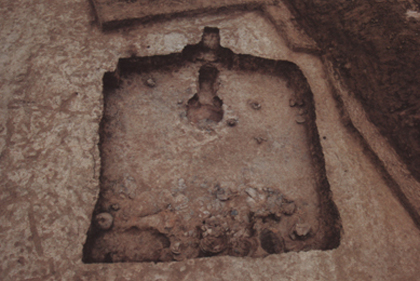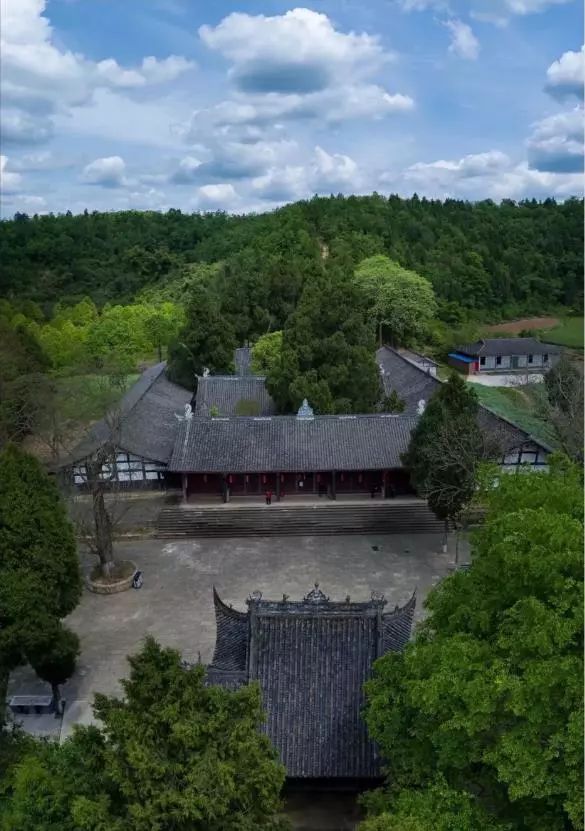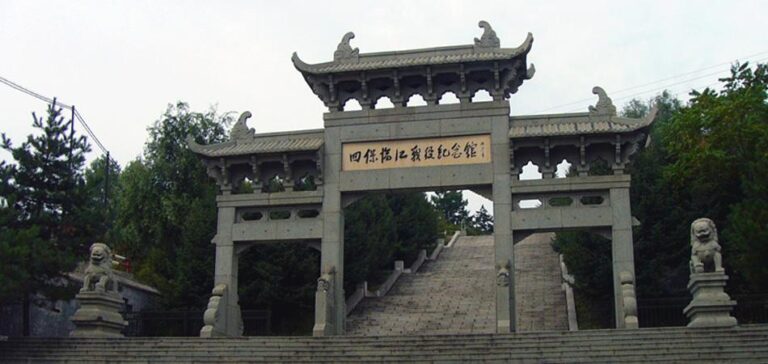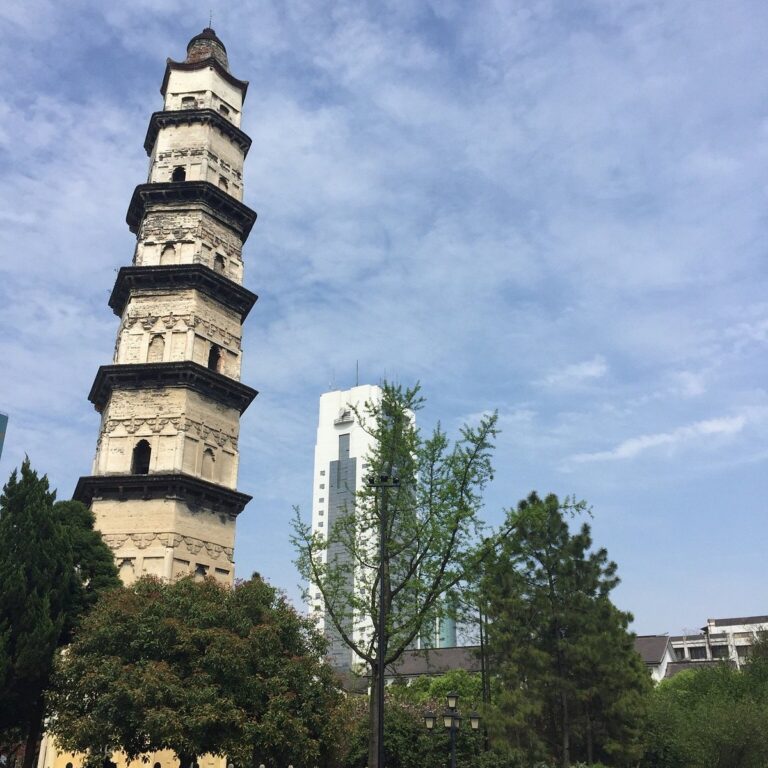Jiuquan Juyan Yizhi: A Must-Visit Destination for Nature Lovers and History Buffs
An Essential Guide to Visiting Jiuquan Juyan Yizhi
In This Guide
- An Essential Guide to Visiting Jiuquan Juyan Yizhi
- The Rich History of Jiuquan Juyan Yizhi
- Main Highlights: What to See at Jiuquan Juyan Yizhi
- Planning Your Visit: A Practical Guide
- Tickets, Hours, and Booking
- How to Get There
- Local Cuisine and Accommodation
- Frequently Asked Questions
- Final Thoughts on Your Trip
Nestled in the vast expanse of the Gansu province lies the Jiuquan Juyan Yizhi, a site steeped in history and mystery. This archaeological treasure, located about 145 kilometers northeast of Jiuquan city along the banks of the Heihe River, offers a fascinating glimpse into China’s rich past. The ruins span three key areas: Dawan City, Diwan City, and the Shenshui Jin Pass, each telling a unique story of the Han Dynasty’s military and cultural significance.
As visitors wander through the remnants of ancient walls and fortified structures, they can almost hear the echoes of soldiers guarding this critical outpost on the Silk Road. The eastern section of Dawan City served as the residence of the Han Empire’s military commander, while the western section bears the scars of time and nature’s relentless forces, leaving behind tales of glory and decay.
The Juyan Yizhi is not merely a destination for history buffs; it is a captivating experience for anyone seeking to understand the intricate tapestry of China’s heritage. Surrounded by the stunning landscapes of the Gobi Desert, this site invites exploration and reflection, making it a must-visit for those traveling through this remarkable region. Whether you are an intrepid adventurer or a curious traveler, the ruins offer a chance to connect with the past and appreciate the enduring spirit of a civilization that has shaped the world for centuries.
The Rich History of Jiuquan Juyan Yizhi
The Jiuquan Juyan Yizhi site, located approximately 145 kilometers northeast of Jiuquan City in Gansu Province, is a significant archaeological site that offers a glimpse into China’s ancient history. This site, known as a national key cultural relic protection unit, is situated along the banks of the Heihe River and is divided into three main sections: Dawan City, Diwan City, and the Shou Shui Jin Guan.
Dawan City is particularly noteworthy as it was the site of the Han Dynasty’s Shou Shui Du Wei Fu, a military command post. The eastern part of this city, known as East Dawan City, comprises an inner city, outer city, and a defensive wall, with the wall remnants standing at an impressive height of 8.5 meters and a base width of 4 to 6 meters. The eastern wall features a gateway, while the western section has suffered significant erosion due to its proximity to the river. Diwan City, on the other hand, retains a singular square defensive structure, measuring 22.5 meters in area, which hints at its historical importance. The Shou Shui Jin Guan has faced considerable natural degradation from wind and sand, with only a beacon tower remaining visible on the landscape today.
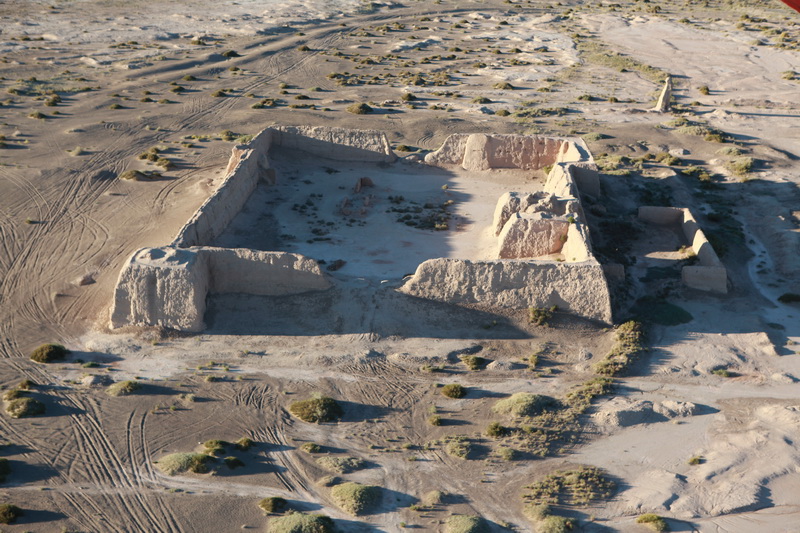
Jiuquan Juyan Yizhi.
The history of Juyan Yizhi is intertwined with the Silk Road, serving as a crucial point for trade and military operations in ancient China. Over the centuries, it has witnessed the ebb and flow of various dynasties, each leaving its mark upon the land. Excavations at the site have revealed artifacts and remnants that reflect the cultural exchanges that took place here, as well as insights into the daily lives of the inhabitants.
The site is not only recognized for its historical significance but also serves as a testament to the resilience of the structures that have withstood the ravages of time and nature. Today, it stands as a reminder of the rich tapestry of China’s past and a focal point for those interested in the heritage that shaped the region. Visitors can explore the remnants of ancient walls and structures, providing a tangible connection to the vibrant history that once flourished along this critical artery of commerce and culture.
Adjacent to Juyan Yizhi, the region is home to several other significant historical sites, enhancing the cultural richness of the area and offering visitors an extensive journey through the historical narratives of Gansu Province.
Main Highlights: What to See at Jiuquan Juyan Yizhi
Nestled in the arid landscape of Gansu Province, Jiuquan Juyan Yizhi is a remarkable archaeological site that captures the essence of ancient Chinese civilization along the Silk Road. As a designated National Key Cultural Relic Protection Unit, this site offers a mesmerizing glimpse into the rich historical tapestry of the Han Dynasty.
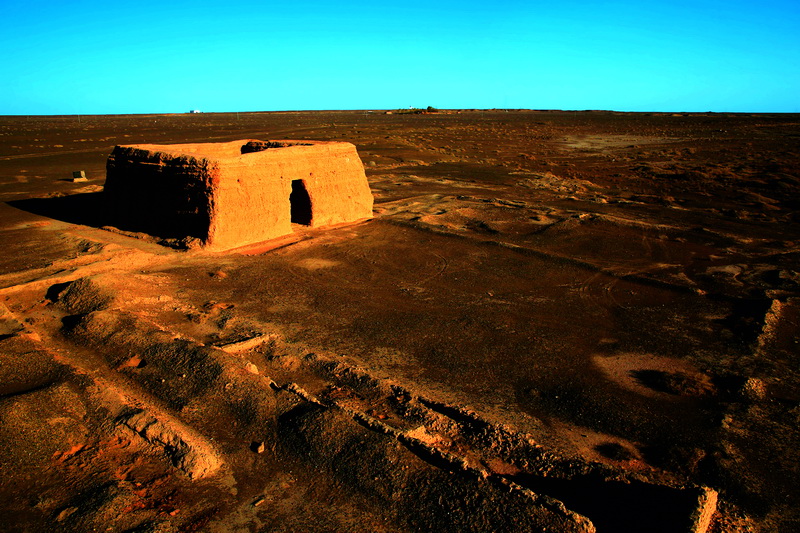
Jiuquan Juyan Yizhi.
Architectural Marvels
The site comprises three main sections: Dawan City, Diwan City, and the Shou Shui Jin Pass. Dawan City, divided by the Heihe River, features the remnants of a Han-era military outpost, the Qianshui Duwei Fu. Visitors can marvel at the impressive remains of the inner and outer city walls, with the eastern wall reaching heights of up to 8.5 meters. This majestic structure is not only a testament to the architectural prowess of the Han Dynasty but also serves as a vivid reminder of its strategic importance in the region.
Historical Significance
Juyan Yizhi was a crucial military and trade hub during the Han dynasty, facilitating the movement of troops and goods along the Silk Road. The site’s expansive ruins whisper stories of a vibrant past, where merchants and soldiers once mingled in bustling marketplaces. As you explore, you’ll encounter remnants of ancient walls, watchtowers, and fortifications that hint at the area’s former glory.
Scenic Surroundings
The stark beauty of the surrounding landscape enhances the site’s allure. The rugged terrain of the Gobi Desert contrasts with the historical remnants, providing a stunning backdrop for photography and exploration. Nearby attractions like the famous Yuyuan Lake and the West Triangle City Ruins offer additional opportunities for adventure and discovery.
Cultural Connections
Visiting Juyan Yizhi is not just a journey into the past; it also connects you to the broader narrative of Chinese and Silk Road history. The site is a gateway to understanding the cultural exchanges that shaped the region, showcasing artifacts and historical insights that illuminate the legacy of this ancient trade route.
Accessibility
Located about 145 kilometers northeast of Jiuquan City, Juyan Yizhi is easily accessible by car or guided tours, making it an ideal day trip for history enthusiasts and curious travelers alike. The site is well-marked, and informational signage enhances the visitor experience, ensuring that you leave with a deeper appreciation of China’s historical heritage.

Jiuquan Juyan Yizhi.
Whether you’re a history buff, an avid traveler, or simply in search of breathtaking vistas, Jiuquan Juyan Yizhi promises an unforgettable experience steeped in ancient history and natural beauty.
Planning Your Visit: A Practical Guide
Practical Guide to Jiuquan Juyan Yizhi (居延遗址)
Visiting the Jiuquan Juyan Yizhi offers a unique glimpse into China’s rich historical tapestry. Nestled in the arid landscapes of Gansu province, this archaeological site is a must-see for history enthusiasts and adventurers alike. Here’s everything you need to know to make the most of your trip.
Getting There
Jiuquan Juyan Yizhi is located approximately 145 kilometers northeast of Jiuquan city, specifically in the northeastern part of Jinta County. The site can be accessed via local transportation options:
- By Car: Renting a car provides the most flexibility for exploring the area and its surrounding attractions.
- Public Transport: Buses from Jiuquan to Jinta County are available, but check local schedules for timings.
Best Time to Visit
The ideal time to visit is during spring (April to June) and autumn (September to October) when temperatures are milder. Summers can be extremely hot, while winters may bring freezing temperatures.
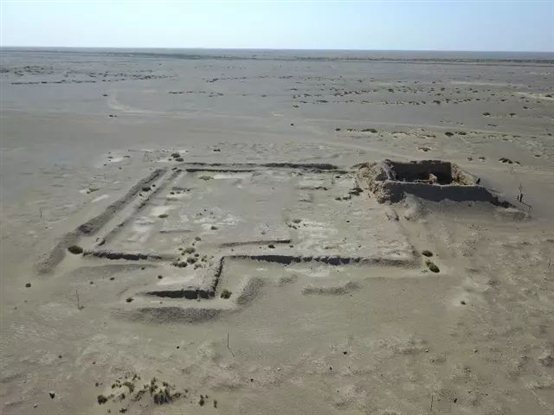
Jiuquan Juyan Yizhi.
What to See
Juyan Yizhi consists of three main sections: Da Wan Cheng, Di Wan Cheng, and Jian Shui Jin Guan. Each area has its unique features:
-
Da Wan Cheng: This site features remnants of the Han Dynasty military garrison, with walls rising up to 8.5 meters. Visitors can explore the ancient city layout, including the inner and outer walls and remnants of the gates.
-
Di Wan Cheng: A smaller square fortification remains here, notable for its unique construction and historical significance.
-
Jian Shui Jin Guan: Although natural erosion has taken a toll, the beacon tower still stands, highlighting the site’s military importance during ancient times.
Nearby Attractions
Make sure to include these sites in your itinerary:
-
Yuan Yang Pool Reservoir: A picturesque location perfect for photography and relaxation.
-
West Triangle City Ruins: Another archaeological marvel showcasing ancient city design.
-
Weilu City Ruins: Offers insights into the history and architecture of the period.
Facilities and Amenities
While the site itself is primarily focused on historical exploration, there are limited amenities:

Jiuquan Juyan Yizhi.
- Visitor Center: Check for any available information or guided tours.
- Restrooms: Basic facilities may be available, but it’s advisable to plan accordingly.
- Food and Drink: Bring water and snacks, as options near the site may be limited.
Tips for Visitors
-
Dress Appropriately: Wear comfortable clothing and sturdy shoes suitable for walking and exploring rugged terrain.
-
Pack Essentials: Sunscreen, hats, and plenty of water are crucial, especially during warmer months.
-
Photography: Capture the stunning landscapes and ancient ruins, but be respectful of the site’s historical significance.
-
Guided Tours: Consider joining a guided tour for deeper insights into the history and context of the ruins.
Local Culture and Etiquette
Immerse yourself in the local culture by trying regional specialties. Jiuquan is known for its unique culinary offerings, including:
- Kekezhi Melons: A local delicacy worth tasting.
- Dried Fruits and Nuts: Popular snacks to enjoy while you explore.

Jiuquan Juyan Yizhi.
Be respectful of local customs, especially when interacting with residents or visiting religious sites nearby.
By following this practical guide, your visit to Jiuquan Juyan Yizhi will be enriching and memorable, giving you a profound appreciation for China’s historical narrative. Enjoy your adventure!
Tickets, Hours, and Booking
When planning a visit to the Jiuquan Juyan Yizhi (居延遗址), it’s essential to be informed about the ticketing process to ensure a smooth experience at this significant historical site.
Admission to Jiuquan Juyan Yizhi is typically free, allowing visitors to explore the ruins and immerse themselves in the rich history without the burden of entry fees. However, it is advisable to check for any specific events or temporary exhibitions that might require a ticket or special access, as these can vary throughout the year.
For those interested in guided tours, information regarding local tour operators and potential fees can often be found at tourist information centers in Jiuquan. These tours can enhance your experience by providing in-depth context about the site’s historical significance, including its role during the Han Dynasty and its archaeological importance.
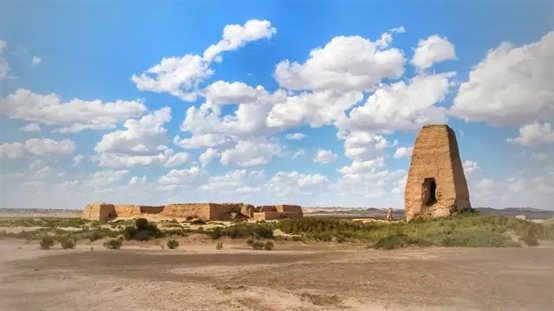
Jiuquan Juyan Yizhi.
In terms of accessibility, the site is well-connected by local transportation options from Jiuquan city center, making it convenient for visitors to reach. It’s recommended to allocate a few hours for your visit to fully appreciate the various sections of the site, including Dawan City and the remains of the Han-era military outpost.
For the most up-to-date information on any changes to ticketing policies or special events, visiting the local tourism website or contacting the Jiuquan tourism bureau prior to your trip is a good practice. This will ensure you have the latest details and can make the most of your visit to this fascinating cultural landmark.
How to Get There
Getting to Jiuquan Juyan Yizhi (居延遗址) is a journey through the expansive landscapes of Gansu Province, where ancient history meets modern convenience. Here’s a comprehensive guide to help you navigate the transportation options available for visiting this remarkable archaeological site.
By Air
The nearest major airport to Jiuquan Juyan Yizhi is Jiuquan Airport (酒泉机场), located approximately 200 kilometers from the site. The airport offers domestic flights connecting to major cities like Beijing, Xi’an, and Lanzhou. Upon arrival, travelers can rent a car or take a taxi to reach Juyan Yizhi. Make sure to check flight schedules in advance, as options may vary.
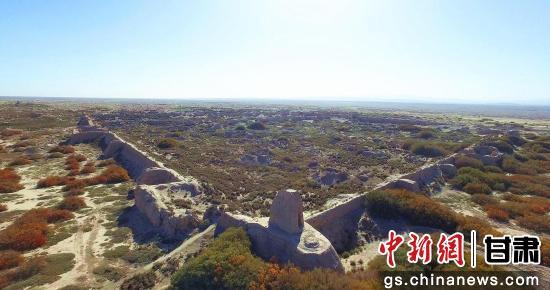
Jiuquan Juyan Yizhi.
By Train
Jiuquan is well-served by the railway network, making it accessible by train. The Jiuquan Railway Station (酒泉火车站) connects to several key cities, including Lanzhou and Xinjiang. After arriving at the station, you can take a local taxi or hire a car to continue your journey to Juyan Yizhi, which is roughly a 2-hour drive from the station.
By Bus
For those preferring road travel, long-distance buses are a viable option. Buses from major cities such as Lanzhou and Dunhuang operate frequently to Jiuquan. The main bus station in Jiuquan is located near the city center, and from there, you can catch a local bus or taxi to Juyan Yizhi. Make sure to confirm the bus schedules, as they may vary depending on the season.
Car Rentals
If you wish to explore the surrounding areas at your own pace, renting a car is an excellent option. Several rental agencies operate in Jiuquan, and the road conditions are generally good. The drive to Juyan Yizhi is scenic, providing an opportunity to appreciate the natural beauty of Gansu Province. Ensure you have a GPS or a reliable map, as signage may be limited.

Jiuquan Juyan Yizhi.
Local Transport
Once you arrive at Juyan Yizhi, local transportation options are limited, so it’s advisable to have your own means of transport. Taxis are available in Jiuquan, and pre-arranging a driver for the day can provide flexibility for exploring the archaeological site and nearby attractions.
Guided Tours
For a hassle-free experience, consider joining a guided tour that includes transportation. Many tour operators in Jiuquan offer packages that cover transportation, entrance fees, and guided visits to Juyan Yizhi and other nearby historical sites.
Conclusion
Reaching Jiuquan Juyan Yizhi is relatively straightforward, with various transportation options available to suit different preferences and budgets. Whether by air, train, bus, or car, the journey will lead you to one of China’s significant historical treasures, offering a glimpse into the rich tapestry of ancient civilization. Plan your trip well, and be prepared for an unforgettable adventure in Gansu Province.

Jiuquan Juyan Yizhi.
Local Cuisine and Accommodation
When exploring the historical wonder of Jiuquan Juyan Yizhi, visitors will find ample opportunities to indulge in local cuisine and comfortable accommodations that reflect the region’s rich culture and heritage.
Dining Options
-
Local Delicacies
Jiuquan is renowned for its diverse culinary offerings, influenced by its geographical location along the ancient Silk Road. Visitors can savor dishes such as Kekeqi Sweet Melon, known for its sugary taste and crisp texture, and Dunhuang Lamian, a hand-pulled noodle dish that embodies the flavors of the region. For a true taste of local culture, try Dunhuang Watermelon and Roasted Lamb Skewers, which are popular among both locals and tourists. -
Restaurants to Visit
- Zhongshan Restaurant: Famous for its traditional Gansu-style cuisine, this establishment offers a warm atmosphere and dishes that highlight local flavors. Don’t miss their Braised Lamb and Sizzling Noodles.
- Jiuquan Cuisine House: This restaurant specializes in local delicacies and provides a cozy environment perfect for families. Their Stir-fried Seasonal Vegetables and Homestyle Stews are particularly popular.
- Dunhuang Snack Street: For those looking to sample a variety of street foods, this is the place to be. Here, you can find everything from Spicy Grilled Fish to Sweet and Sour Fruits, catering to all palates.
Accommodation
- Hotels
Jiuquan features a range of accommodations from luxury hotels to budget-friendly options, ensuring all travelers find a suitable place to stay. - Jiuquan International Hotel: A 4-star hotel that offers modern amenities, including free Wi-Fi and an on-site restaurant. It’s conveniently located near the city center, making it ideal for those looking to explore nearby attractions.
- Dunhuang Hotel: This hotel combines comfort with elegance, featuring spacious rooms and excellent service. Guests can enjoy local dishes at the hotel’s restaurant and relax in the serene garden area.
-
Hanting Hotel (Jiuquan): A budget-friendly option for travelers looking for clean and comfortable lodging. The hotel provides essential amenities and is located close to public transportation.
-
Homestays and Guesthouses
For a more intimate experience, consider staying at a local homestay or guesthouse. These accommodations often offer personalized service and a chance to interact with local families, providing insight into daily life in Jiuquan. Many host families serve traditional meals, allowing guests to experience authentic Gansu cuisine firsthand.
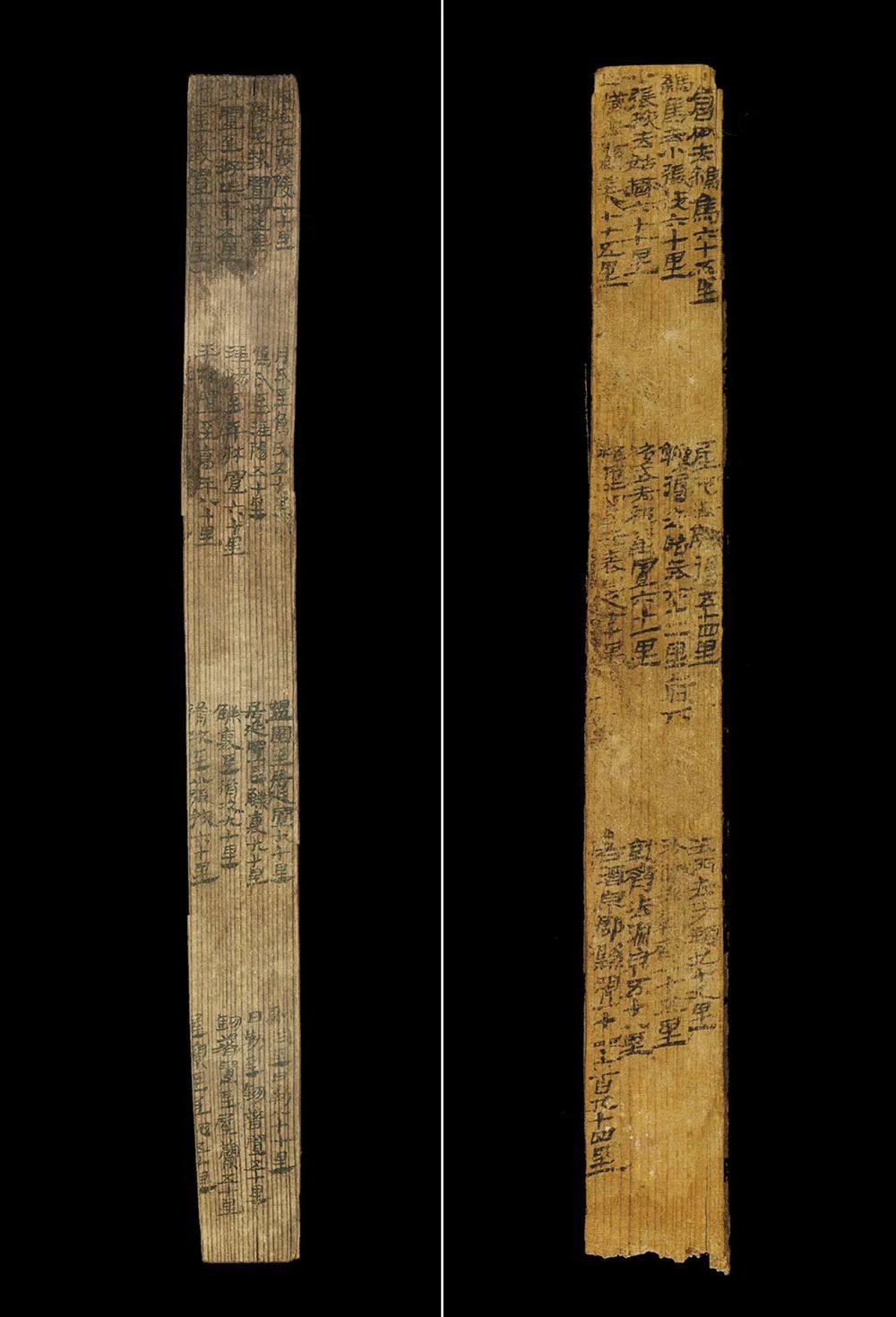
Jiuquan Juyan Yizhi.
Tips for Travelers
It’s advisable to book accommodations in advance, especially during peak tourist seasons, to ensure availability. Additionally, exploring local restaurants not only enhances your culinary experience but also supports the community. Whether you choose to dine in a restaurant or stay with a local family, the warmth and hospitality of Jiuquan will surely enrich your visit to this historical site.
Frequently Asked Questions
-
Where is Jiuquan Juyan Yizhi located?
Jiuquan Juyan Yizhi (居延遗址) is situated about 145 kilometers northeast of Jiuquan city, along the banks of the Heihe River in Gansu Province, China. -
What are the main components of the Juyan Yizhi site?
The site comprises three main parts: Dawan City (大湾城), Diwan City (地湾城), and the Shou Shui Jin Pass (肩水金关). Each section contains remnants of ancient city structures and defensive walls. -
Is there an entrance fee to visit Juyan Yizhi?
Currently, there is no entrance fee to visit Juyan Yizhi, making it an affordable destination for travelers interested in historical sites. -
What historical significance does Juyan Yizhi hold?
Juyan Yizhi is recognized as a National Key Cultural Relics Protection Unit in China, showcasing the remnants of Han Dynasty forts and settlements that played a crucial role along the Silk Road. -
Are there guided tours available at Juyan Yizhi?
While there are no formal guided tours, visitors can explore the site independently. Local guides may be available for hire on-site for a more informative experience. -
What nearby attractions should I consider visiting?
Nearby attractions include the Xisan Triangle City Ruins, Weilu City Ruins, and the Taoyuan Temple Golden Pagoda, all of which complement a visit to Juyan Yizhi. -
What is the best time of year to visit Juyan Yizhi?
The ideal time to visit Juyan Yizhi is during spring (April to June) and autumn (September to November) when the weather is mild, making it comfortable for outdoor exploration. -
Can you recommend accommodations near Juyan Yizhi?
While there are limited accommodations directly near Juyan Yizhi, staying in Jiuquan city offers various options, including hotels and guesthouses that cater to different budgets.
Final Thoughts on Your Trip
Exploring the Jiuquan Juyan Yizhi site is more than just a journey through ancient ruins; it is a profound encounter with history that echoes the stories of the Silk Road. Nestled in the heart of Gansu province, this archaeological treasure invites visitors to immerse themselves in the rich tapestry of Chinese culture and heritage. As you wander through the remnants of the Han Dynasty, you can almost hear the whispers of traders and travelers who once traversed these lands, connecting East and West.
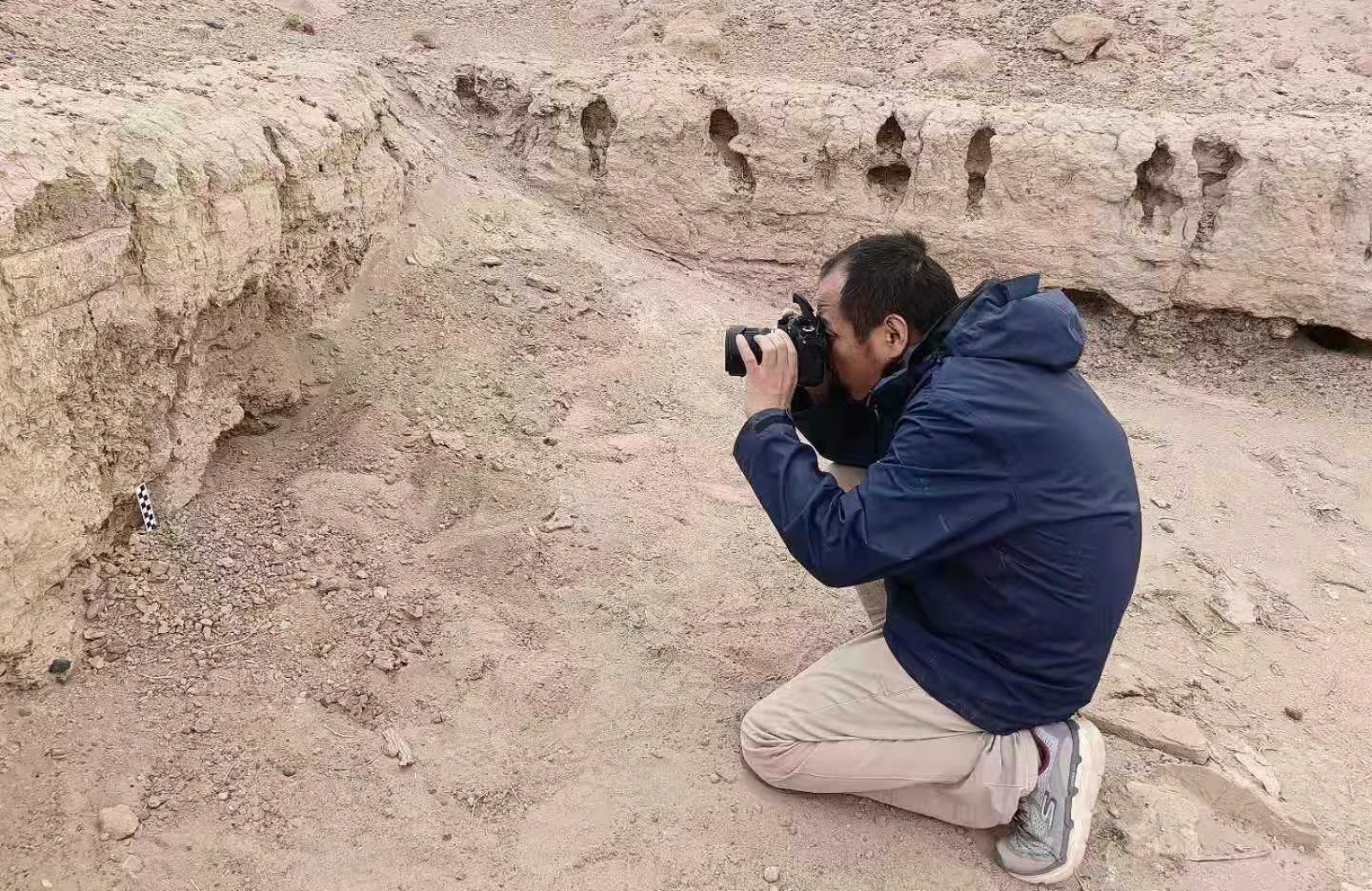
Jiuquan Juyan Yizhi.
The site’s unique location along the banks of the Heihe River adds a picturesque backdrop to your exploration, making it not only a historical site but also a place of natural beauty. The remnants of ancient structures, despite the ravages of time, stand as a testament to human ingenuity and resilience. From the towering walls of Dawan City to the serene landscapes surrounding the site, each element tells a tale that enriches your understanding of the region’s past.
Visiting Jiuquan Juyan Yizhi offers an opportunity to reflect on the profound impact of history on our present and future. It is a chance to witness firsthand the crossroads of civilization that shaped cultures and societies. Whether you are a history buff, an adventure seeker, or simply a curious traveler, the allure of Juyan Yizhi is undeniable. Allow yourself to be captivated by its stories, and let the echoes of the past inspire your own journey.
